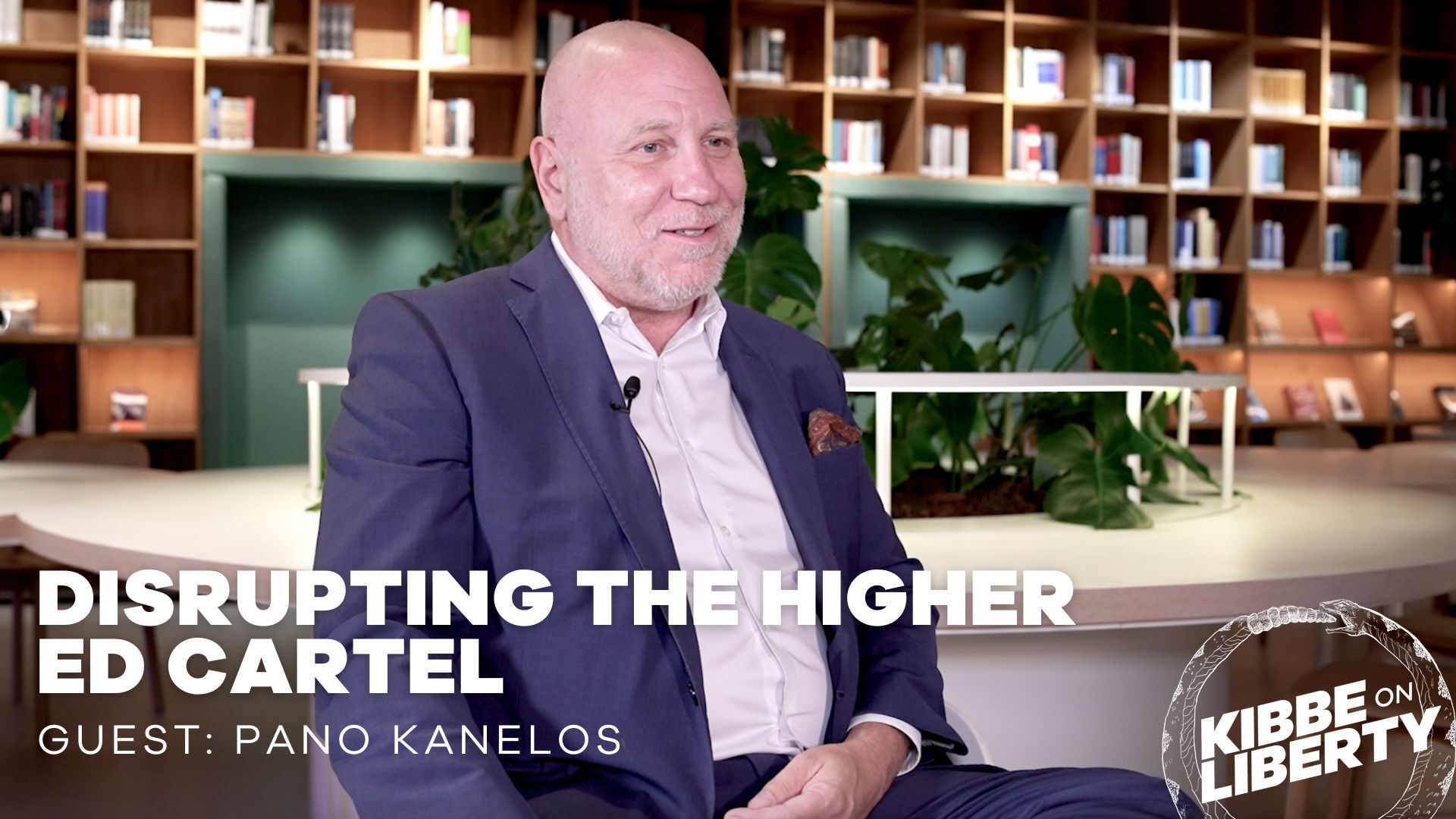
The Artificial is Rarely Intelligent
Jerry Seinfeld’s commencement speech at Duke garnered national attention for the wrong reason. The handful of kids who petulantly stomped out in protest of Seinfeld’s “Zionism,” which I guess means being Jewish and believing your race deserves a homeland free of wanton pogroms, earned a few headlines, while also kicking in the Streisand Effect, awarding the sitcom star even more media regard. Score one for the children being carpet-bombed in Rafah, right?
What Seinfeld told graduates, which in typical comedic fashion cut against the grain of public sentiment, was approbatory. So of course it wasn’t sensationalized. He issued no angry adjurations to feel guilty about earning a college degree because someone, somewhere, probably in a Botswanan bidonville, will never achieve the same credential. No preening “land acknowledgement.” No “remember your fellow man” Dickensian platitudes meant to humble with humiliation. No cringey “change the world” injunction that inevitably leads to an overly idealistic student throwing him or herself into traffic to save the whooping crane.
Instead, Seinfeld ripped every page out of the DEI handbook, urging the audience to embrace their privilege and—get this—be proud of their accomplishments. Who knew it was still legal to toot your own horn in America? (Lest you’re a racial/sexual minority with a grievance pathology, obviously.)
That’s all grand contrarian messages go, and Seinfeld’s pro-privilege postulation would fit nicely in a Daily Wire infomercial. (Picture Ben Shapiro hyper-verbally sputtering, “Facts don’t care about your feelings and privilege is good. You hear that, libs? PRIVILEGE IS GOOD. Ha! Triggered!) It’s also uniquely American—that is, it was American up to about, by my estimate, seven years, fifty days, and thirty-two seconds ago when the Great Awokening entered its shame-success phase, when even the slightest flash of self-respect is slagged and maligned.
Being in favor of unapologetic excellence gives Seinfeld and edgelord verve. But he went further, needling America’s most applauded class, after blacks, gays, and illegal migrants: the lazy. In particular, he went after the biggest boon to the slothful since the advent of DoorDash: artificial intelligence.
“AI,” Seinfeld quipped, “is the most embarrassing thing we’ve ever invented in mankind’s time on earth. Oh, you can’t do the work. Is that what you’re telling me? You can’t figure it out?” You could almost hear the iconic bass line and laugh track as he delivered the bit. “This seems to be the justification of AI: I couldn’t do it.”
That AI is a shortcut for the short-sighted and short-thinking is indisputable. The synthetic brain was coded to ease the pressure on organic brain tissue—that’s its deontological purpose. Meanwhile, half of comedy’s deontological purpose is, as Justin Taylor explains, is putting forth a “critique of the world as it is based on a vision of the world as it ought to be.” The other half is to tickle your diaphragm with discernment.
Seinfeld mocks Silicon Valley’s latest plaything as a godsend for hand-sitters, thumb-twiddlers, fiddle-fotters, dodderers, and work-shy corner-cutters. Extra points for Jerry: the shiftless need beration, if only to get their sorry hides off the couch.
Yet we seem to be increasingly settling for AI-generation in commercial areas that, as recently as a month ago, weren’t subsumed by computerized composition. And the creations are far from triggering an “uncanny valley” feeling. They’re downright chintzy.
Take Rudy Giuliani’s fall from grace, hitting a new nadir with a panhandling coffee ad. America’s mayor-turned-mendicant is fobbing off drop-ship java beans in cheaply cartoonish bags for $30 a pop. “The will to survive,” or pay off legal debt, “sweeps away moral imperatives,” declared poet Marius Kociejowski. The spot Rudy recorded for his latest fleece-MAGA scheme was even jankier. He recorded his please-buy-plea in front of an obvious AI-produced background, complete with a Photoshop of his own product, which was supposed to resemble a Manhattan penthouse but comes across like a living room out of Sims 2. Just like his challenging the 2020 election results, Giuliani could hardly be accused of supererogatory effort.
The fakery involved in Giuliani’s light-roast-grift is of a piece of widespread AI usage. There’s always something off, something askew, something off the mark, something unholistic, something vaguely uneasy about digitized simulacrums of real life. The computerized-contoured images aren’t all the way there; the .JPEGs can’t pass a visual Turing test.
For one, there are the human hands, which most AI pic-producer flubs by turning digits and palms into alien echinoderms. Then there was the Google chatbot’s wokely unhistorical depictions of ethnicities, including Indian-shaded Vikings and blackified American Founding Fathers. Clearly, Gemini was coded with more Lin-Manuel Miranda than Noah Webster. There was also the amorous case where Microsoft’s own AI avatar tried seducing a journalist—a very artificial affair, if you’ll allow. Facebook, which was basically created by a borg passing as a man that has a surname curiously close to “sucker,” hosts a multiplying ecosystem of bizarre “island of lost AI” slop content, including erotic martial Christian memes.
I know the left wants to sexualize everything, but J.C. being spooned by a biracial soldier couplet isn’t something any human mind dreams up. It could only come from the rigidly binary algorithm of a circuit board that takes man-made inputs and pushes them to illogical—or maybe too logical—conclusions.
With the U.S. presidential election in high gear, and a long hot summer of hustings events on deck, the use of AI campaign tactics are no doubt underway. That also means a concomitant rise in shenanigans, including the use of deepfake videos and propagandic imagery. Fake news has long been in America’s stock of electoral weapons, but AI has the capacity to take the mendacious scheming of trolls to new heights. ChatGPT commandeered Scarlett Johansson’s sultry voice; how long before a dirty trickster uses a comp-contrived Biden dialect to tell Democratic voters the election is really on November 12th? Answer: six months ago.
If artificial intelligence is a workaround for trying, it’s going to take actual effort to parse the real from the ersatz. Piercing AI’s verisimilitude will require, contra Seinfeld, us to do the work. Sometimes it’ll be simple to spot the N64 diorama behind a washed-up pol selling repackaged Folgers. Other times, it will take that extra few seconds to realize what you’re hearing or seeing isn’t an organic creation but a tech-fashioned artifice.
I know it’s noisy out there, and too easy to scroll along. But take the extra half-minute to question and consider if what you’re looking at comports with reality. Remember Kipling and keep your head if you see a grainy video of President Biden reading Mein Kampf and his lips aren’t matching the words he’s supposedly reciting. And do not, under any circumstances, take the first Google result for gospel.
Free the People publishes opinion-based articles from contributing writers. The opinions and ideas expressed do not always reflect the opinions and ideas that Free the People endorses. We believe in free speech, and in providing a platform for open dialogue. Feel free to leave a comment.




Pingback: Forever Word War